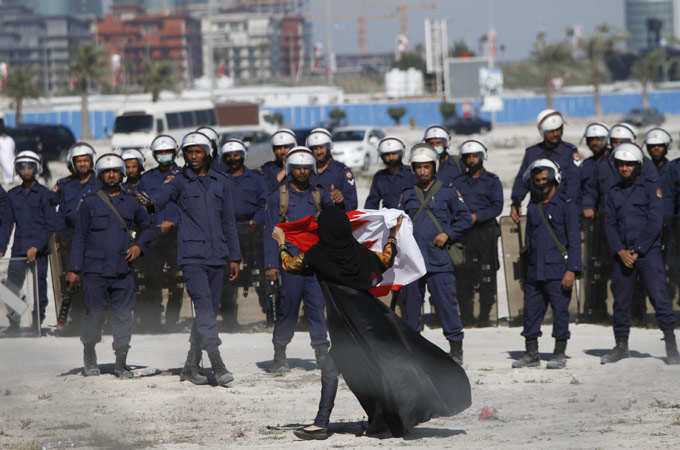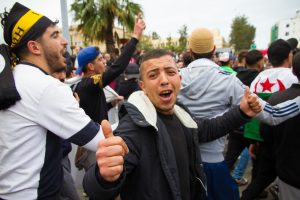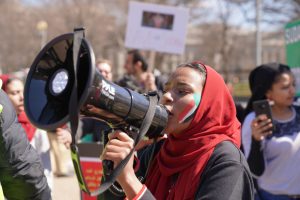via IPS News
The special session of the Bahraini National Assembly held on Sunday Jul. 28 was a spectacle of venom, a display of vulgarity, and an unabashed nod to increased dictatorship.
Calling the Shia “dogs”, as one parliamentarian said during the session, which King Hamad convened, the Al-Khalifa have thrown away any hope for national reconciliation and dialogue.
The 22 recommendations approved during the session aimed at giving the regime pseudo-legal tools to quash dissent and violate human and civil rights with impunity. All in the name of fighting “terrorism”.
Watching a video of some of the speeches during the session, one is saddened by how low official political discourse has become. Students of Bahrain yearn for the days when parliamentary debaters were civil and when Shia and Sunni parliamentarians engaged in thoughtful, rational, and tolerant debates despite their political or ideological differences.
In the early 1970s when the Constituent Assembly debated the draft constitution, Bahrainis followed the speeches by their elected and appointed representatives with much respect and hope for the future of a modern, tolerant, and civil society.
Such parliamentarians as Rasul al-Jishi, Jasim Murad, Ali Saleh, Abd al-Aziz Shamlan, Ali Sayyar, Isa Qasim, Qasim Fakhro, and others made their countrymen proud with the quality of debate that characterised Bahrain’s first ever elected parliament.
Even such ministers as Muhammad bin Mubarak al-Khalifa, Ali Fakhro, and Yusif Shirawi participated in those parliamentary debates and worked jointly with elected members to chart a more hopeful future for all the people of Bahrain.
As I sat through those parliamentary sessions in 1973 and followed the lengthy discussions on a myriad of constitutional amendments, I envisioned a democratically prosperous Bahrain for years to come. The National Assembly, however, was dissolved two years later, and the constitution was suspended. Al-Khalifa ruled by decree ever since.
The parliamentary special session last Sunday showed a divisive, intolerant, and fractured country that is rapidly descending into chaos. It’s as if civility, rationality, and moderation have become relics from the past.
King Hamad and the Crown Prince welcomed the recommendations, and the powerful prime minister urged his ministers to implement them immediately; in fact, he has threatened to fire any minister who slows their implementation.
According to media reports, the recommendations were prepared before the meeting and were disseminated to the media a few minutes after the session ended. They were not even debated meaningfully or rationally during the session.
The regime’s fear that Bahrainis would have their own “tamarud” (rebellion) civil disobedience movement to confront the regime on Aug. 14, Bahrain’s actual independence day, drove the timing of the session. The Bahraini opposition hopes to emulate the Egyptian “tamarud”, which indirectly led to Morsi’s removal.
Like other autocratic regimes, whether under Abdel Fattah al-Sisi in Egypt or Bashar al-Assad in Syria, Al-Khalifa justified the draconian recommendations against all forms of opposition and peaceful dissent in the name of fighting “terrorism” and incitement of “all forms of violence” (Recommendation #3). The regime will likely use these recommendations to ban all peaceful demonstrations and protests.
The regime is prepared, according to Recommendation #2, to revoke the citizenship of Bahraini citizens “who carry out terrorist crimes and those who instigate terrorism”. The regime defines a terrorist as any Bahraini who is suspected of being a dissident or actively advocating genuine reforms. In fact, Recommendation #6 bans “sit-ins, rallies and gatherings in the capital Manama”.
The regime does not seem perturbed by the fact that citizenship revocation violates international legal norms and the Bahraini constitution. In fact, this might be a sinister way for the Sunni al-Khalifa to alter the demographics of the country by depriving the Shia dissidents of citizenship.
Viewing the entire protest movement through the security prism, as the recommendations imply, the regime seems bent on escalating its crackdown against peaceful protest and freedoms of speech and assembly, according to the Bahrain Centre for Human Rights.
Under Recommendation #7, the country could soon be ruled under martial law or “National Safety”, as the regime euphemistically calls it.
The recommendations have put the country on a sectarian collision course, have dealt a major blow to peaceful dissent and civil rights, and have raised serious questions in Washington about Al-Khalifa’s commitment to genuine reform.
In a direct rebuke to U.S. Ambassador Thomas Krajeski, Recommendation #11 requests “that all ambassadors to Bahrain to not interfere in the kingdom’s domestic affairs.”
Some die-hard Sunni parliamentarians, with the support of the Royal Court, have urged the regime to expel Ambassador Krajeski from Bahrain, claiming he has been meeting with pro-democracy Shia dissidents. Others have threatened his personal safety.
Still others, with tacit regime support, are hoping the ambassador would be transferred out of Bahrain, much like what happened to political officer Ludovic Hood in May 2011.
At the time, according to the “Religion and Politics in Bahrain” blog, pro-regime Sunni activists demanded Hood’s removal because they claimed he offered “Krispy Kreme doughnuts to demonstrators who had gathered outside the American Embassy” to protest perceived U.S. support for Al-Khalifa.
Now pro-regime Sunni activists are feverishly campaigning against the U.S. ambassador’s public support for human rights and genuine reform in Bahrain. The recommendation curtailing diplomatic activities in the country is squarely aimed at Ambassador Krajeski.
According to Bahrain Mirror, some have advocated banning him from appearing on state media and in pro-regime newspapers, even if the subject he is discussing is gourmet cooking, one of the ambassador’s hobbies!
The anti-Shia and anti-reform underlying theme of the recommendations is a naked display of tribal family autocracy, which Al-Khalifa are determined to preserve at any cost, including tearing the society apart. Adopting these recommendations reflects the regime’s nervousness about the ever-increasing precarious nature of their rule and the unstoppable demands for justice, dignity, and equality.
According to a recently leaked audio recording, Crown Prince Salman was quoted as saying, “The current situation is unsustainable, and the policy we are pursuing cannot continue. People are getting tired, and conditions could worsen any moment. Bigger dangers are threatening our society, and the future is becoming more precarious.”
Washington and other Western capitals should work diligently to disabuse the king and the prime minister of the notion that “securitisation” is the answer to Bahrain’s domestic ills. Engaging with the public on the future of Bahrain, including the Shia majority and the pro-democracy youth movement, is the only way to bring the country back from the brink.
Washington should make it clear to Al-Khalifa that media attacks and threats against Ambassador Krajeski should stop. Whipping the flames of hatred against the U.S. embassy to preserve the regime’s dictatorial rule is a dangerous game, which Al-Khalifa cannot afford to engage in.
As a first and immediate step, King Hamad should muzzle the hotheads in his Royal Court and in the prime minister’s office. In the meantime, the U.S. should initiate serious discussions on how and when to move the Fifth Fleet out of Bahrain to a neighbouring country or over the horizon.






Can also UPLOAD images of Shia opposition ALWEFAQ in their marches and speeches where the front row of the audience is almost exclusively assigned to that Black think line of clerics wearing the Abaaya and the Najafi and Qum turbans, and then they question our views as to why we call their movement religious and sectarian and not secular.
Let me remind you Brother Bader that the Shia dominated opposition in the form of Alwefaq were a party to the democratic process up until the events of February 14, 2011 when they decided to withdraw from the parliament to ride the then more lucrative Arab Spring bandwagon in the hope of a bigger prize of probably ridding the 250 years of Alkhalifa rule once and for all, and instating the grand “Islamic Republic of Bahrain” to follow suit of the Iranian Welayat Faqih.
Alwefaq had 18 parliamentarians in the Parliament. Shias were also present in the Consultative Council, thus quite a forceful presence in the National Assembly. Following Alwefaq withdrawal from Parliament in February 14, 2011, there were new lower house elections and the more moderate ones won. Is this now the fault of the Parliament? or the Government?
And now you are blaming the parliament for taking harsh measures against political opposition???? The entire opposition and Alwefaq are welcomed to take part in the democratic process again, and whenever they wish. There is no problem in that. It’s actually the Shia dominated opposition of Alwefaq who are escalating the situation.
Now, Alwefaq wants to copy cat Egypt’s Tamarrud, forgetting that Egypt’s Tamarrud was essentially a Military Coup and that Tamarrud was probably a creation of the Army. I think Google Earth can categorically establish the masses were no more than half a million people and another half a million if you took the provinces into account, as opposed to the 30-40 million people. It was a plot my friend to topple the Muslin Brotherhood rule through media manipulations. Things were not as they seemed.
I just can’t make head or tail of Alwefaq proposed Tamarrud on August 14, 2013. Not sure what they are thinking of. Who is now escalating? The government or the Shia Dominant opposition of Alwefaq?
With all due respect to both of you gentlemen, I’ve found this back and forth between you, educational/interesting. That said, I refer to my early on comment, that Mr Bader made, about putting aside the old ways and engaging new dialog between parties. Mr Bader does have a point in the way this has boiled over into other avenues, as well as Mr Abdul’s abiut the violence. I also agree about the Brotherhood and the overthrow in Egypt, though I don’t see how any of that-what goes on in other countries-has any bearing on your country. Of course, I don’t live there, so I’m probably out on a limb speaking up. I do agree with Mr Bader as to his not advocating violence, which in my mind, did come from the outside, to stir the pot so to speak. As for the viewpoint[s] from the West, to say much/most in the public arena, is censored out. It’s blogs/newsletters such as this one where those of us in the West can get a view of what’s taking place and sometimes, such as now between the two of you, a good back & forth. There is one point I detect, that being an age difference between the two of you, a generational gap, if you may. Thanks to the both of you for the input as well as thank you to Lobe Log for providing this too.
I have also mentioned the importance of ethnic orientation many times. It’s critical.
In todays circumstances and post 1979 Iranian revolution of Welayat Faqih the ethnic orientation is extremely important. Pre 1979 Shias were a completely different creature to those post 1979. Owing to the fact that the Bahrain opposition is almost entirely Shia dominated and the other fact that probably more than 50% of Bahrain population are against the religiously driven sectarian Alwefaq, the ethnic orientation couldn’t be more important. Whether or not you feel this is offensive is irrelevant.
I need to question this issue of identity and ethnic orientation further. This is central to the issue we are discussing. Are you coming clean Bader? I’d doubt your name is even Bader Al Noaimi- reason- Noaimis are staunch Sunni tribe and there is no way on earth they could propound your views. There are other Noaimis from Naim area in Manama and they are all Shias. These Noaimis are not a tribe but bear the name Noaimi because of the area name of Naim. Which Moaimi are you Bader?
Haven’t you intentionally used the Noaimi name to suggest you are a Sunni but sympathetic towards Shias? to further a political agenda? International media could easily fall in such traps because of total lack of awareness of regional history. Are you really 19 Bader? You have made one big error of quoting “Mohammed Albuflasa as an Advisor to the King”. How do I make sure there are no more errors? Had I not detected this error, people would have taken your views for granted that the Advisor to the King of Bahrain was or is still imprisoned. Is this not propelling and furthering a political agenda?
You see Bader, the international media falls in this trap of rhetorical slogans of human right, equality, torture, freedom, etc. quite easily. I can’t of course blame them but then I am left with the task of vetting everything just to make sure facts are not being misrepresented.
Derailment is another excuse. I have absolutely no problems with your views and opinions. I’d happily debate them with you any time of the day. So far you have created nothing but utter confusion. Try to be yourself Bader and this would please me just fine. If you are a Shia just say saw. Any debate must have clarity so that going forward is an eventuality. I am just being myself Bader and try to take my views in a constructive manner. I also want to help.
I don’t take kindly to you involving personal details about me in this debate, Mr. Aagool. I have been respectful to you and I had hoped that you would have done the same. I have repeatedly stated that your accusations were offensive to me but you believe that this does not matter abd is irrelevant.
I dont see how I have created utter confusion just because I don’t fit into the nice shiny box that you have created for people with the last name of ‘Noaimi’ or people of a specific age group. Thats an unfair generalization and assumption. People can have independent views of their own, you know. But apparently, you believe that people can be generalized and easily said to always possess certain characteristics if they belong to a certain group. That sounds like you’re propagating sectarianism. Are you saying I can’t be Sunni and also be sympathetic to the protesters cause? Who are you to decide these things?
You keep trying to prove to me that Al Wefaq is sectarian when we’ve already agreed that we were. You are not letting this debate move further than that and are instead bringing in personal aspects of my own life and character.
Also, I was NOT exploiting Mr. Buflasa’s name. Thats what you accuse me of. I was bringing him up in order to prove to you that the conflict is not sectarian in nature. No matter what western media, the government or Al Wefaq want you to believe. This issue does not pit Sunni’s and Shia’s against one other. It pits people who have very different views on how Bahrain should be run.
* In the interest of proving to you that people can be and are independent free thinkers, I can send you a copy of my ID to your email. It seems like this is the only proof you will accept. You cant pit people into stereotypes and generalizations like this. The only reason I do this is to prove to you that you are wrong in thinking that people can’t think for themselves. You clearly are not interested in believing me otherwise.